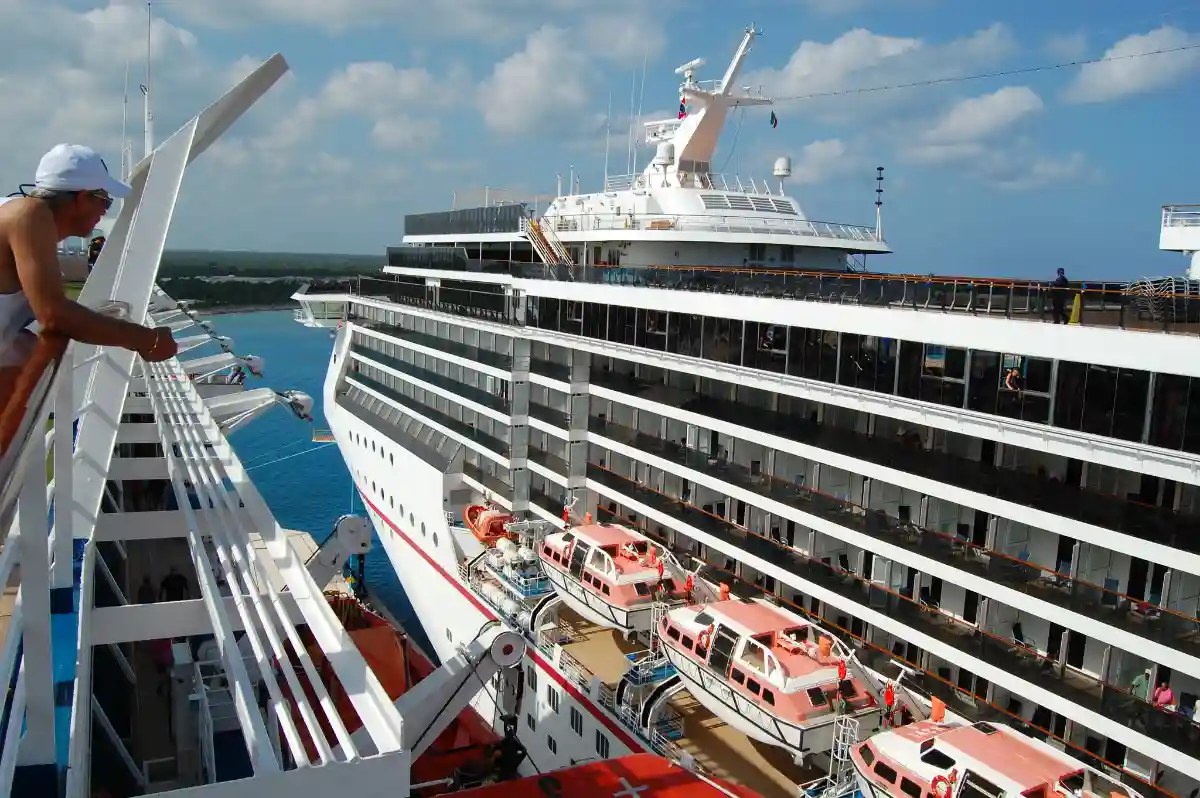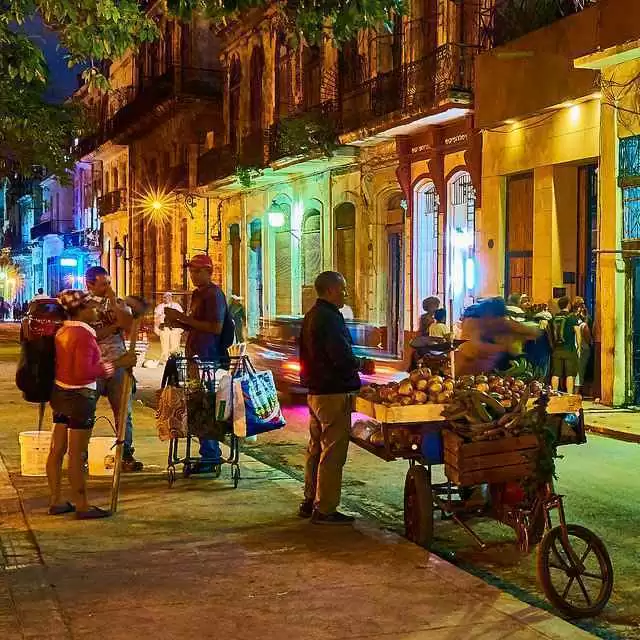.webp.8915a12ef659273590b678034b49b51c.webp)
Celiac.com 12/20/2016 - I know of many people with celiac disease who dread traveling. They even cringe at eating out in restaurants. One person actually said it on the Web: "I have celiac disease, and I was sick of being poisoned in restaurants, even after asking for gluten-free food." It can also be disastrous to spend even one week in a foreign country where there is a language barrier. Part of the problem? Point your finger at yourself. Many of us do not prepare ahead and travel with our diet in mind.
According to Wm. K. Warren, Medical Research Center for Celiac Disease in San Diego, celiac disease is twice as common as Crohn's disease, ulcerative colitis and cystic fibrosis. The website Open Original Shared Link has named Pennsylvania as the most celiac-friendly destination in the world. Wow!
Celiac.com Sponsor (A12):
Eating out can be difficult for several reasons. We do not yet have a global definition for gluten-free. It does not exist in the restaurant world. Most restaurants buy in bulk, such as a 12" x 6" can of tomato sauce, a gallon of sweet and sour sauce, and huge bags of fries, which more and more are being tossed in pure flour prior to frying. I have heard that McDonald's is now offering items that do not have gluten in the ingredients to allow for the possibility of inadvertent cross contamination. Their famous fries are made gluten-free in a separate fryer. Hamburger patties and many breakfast items are also gluten-free. Early breakfast at McDonald's before you "hit the road" with a packed car in which your children are belted in.
This sounds like a travel brochure for New Zealand, but Celiac.com states that traveling in New Zealand is a pure pleasure for the celiac. Gluten awareness is widespread, there are gluten-free food options virtually everywhere you go, and product labeling for allergens and gluten is typical. Those of you planning a Disneyland holiday this year will be pleased to note that Disney is earning major kudos from people with celiac disease, gluten intolerance and other food allergies. They claim that for more than a decade Disney has worked to provide information and options to guests with food allergies.
I read a negative blog about gluten-free dining in Maui, and have one to add myself. I would suggest calling ahead; I would suggest not dining at the peak busy periods. Our waiter did not know what celiac disease was, and I did not have my information sheet with me in those years. (I have grown up since then!) The waiter was told twice about gluten; it was described to him. When the meal arrived at our table 3/4 hour later, my husband asked him again if there was any flour used in the making of the dish, and had he checked with the chef? Slight hesitation, hopped on one foot indicating he was busy I assume. He said the meal was "okay". I was up all night ill in someone else's home. We called the next day to do some late sleuth work, only to find out that the waiter had not checked with the cook and just ‘assumed' the meal was safe to eat.
I now travel with a small file containing our "SAFE TO EAT" and "UNSAFE FOODS", or as my husband calls them, "SAFE" and "SORRY". I have laminated my own list. I carry a home-made typed sheet about celiac disease, not going into our reactions in a big way, but telling people that ingesting gluten, that means rolled oats too, can make me very ill. Celiac disease is a most difficult disease to diagnose, and equally difficult to explain "quickly" to a host or hostess, or restaurant waiter.
Statistics are not standing still. Coeliac disease (celiac = Western)< (Coeliac = Great Britain, in the United Kingdom is the leading charity (Coeliac UK), and affects 1% of the children in the United Kingdom. All major grocery stores have a large gluten-free section. The last time I visited my family I made a pig of myself eating cream buns and pie, all with the International Logo, and though food is more expensive in the UK, the gluten-free food was not as expensive as it is here. We made gluten-free restaurant cards with the explanation regarding the disease on the back.
This year, when we traveled to the Grand Sirenis Mayan (all inclusive) in Mexico I did not have to keep saying, "NO FARINA". (To the person filling the heated trays, I was "nuts".) After so many years of traveling to all inclusive hotels in Mexico, this year the light bulb went on. My husband wrote out an information sheet about celiac disease and our "Safe and Sorry" list and went on the World Wide Wonderful Web and had it translated into Spanish. We were able to advise the assistant manager right away upon registration. No-one at the registration desk had heard of celiac disease, so that was my education class for them. But I received exceptional service. Every restaurant we booked for supper had the information sheets faxed to them by the registration desk ahead of time and we just had to mention our name, they went down their list to check it off, and they saw the Spanish note attached. During the entire two weeks I was not sick from ingesting gluten and I did not have one dermatitis herpetiformis lesion. I thought I had one but it turned out to be a bug bite!
HINT: Some hotels that provide a free breakfast buffet means you will probably have access to a toaster. Several companies now manufacture heavy-duty reusable toaster bags that let you toast gluten-free bread in the hotel toaster without fear of cross contamination. Toaster bag brand names include the following:
...Toast it Reusable Toaster Bags ... Toastabags ... Kitchen Craft Non-Stick Reusable Toaster Bags. Bring sealed bags of gluten-free cereal, and add milk and fruit from the restaurant. Bring your own rice cakes or granola bars, and ask the restaurant for cheese, fruit or for individual servings of cream cheese. You can consider faxing a note to the restaurant staff in advance to help explain the gluten-free diet. Many restaurants are more than willing to adapt their menu items to suit your needs, but these things have to be done ahead and require a bit of thought. Celiac disease is virtually unheard of in some parts of eastern Asia, so a written description in the local language will be very important.
"WEB: Travel and holidays Coeliac UK" state they have information leaflets for more than 35 countries, with translations that can be used in many others. These detailed, useful phrases will help you while out and about as well as with local cuisine, applicable allergen labeling and contact details for local coeliac societies. In the UK local organizations can sometimes provide lists of hotels/restaurants and shops that supply gluten-free foods, as well as their gluten-free food list.
Some celiac association chapters actually provide a "Pocket Dictionary" that they claim is the most reliable resource available for information on what's safe for people living with celiac disease. The books are updated regularly. Check at a chapter near you and see if they provide these celiac dictionaries; I am certainly going to check ours out!
They advertise Spain as being the celiac's paradise. Most of the products are labeled with gluten-free symbols, and their labeling system for gluten-free is quite different from any other labeling, for example "sugar free".
Brazilians are not used to the term celiac. Almost all have heard about gluten because it is law there. All the processed foods and drinks are labeled with either "contains gluten" or "does not contain gluten". That would be wonderful, rather than reading all the ingredients, almost putting the item in your grocery buggy until you read at the very bottom of the box the wording, "may contain traces of gluten". How can they measure a trace, and which box has a bigger trace than another? Even food made in a machine that uses gluten has to be avoided if you want to stay healthy.
I would have thought that Italy would be a difficult place to find gluten-free foods. It is the land of pasta after all. But on the website (gluten-free holidays, trips and vacations) some of the happiest holidays by writers have been spent in Italy. Switzerland is famous for it's delicious cakes and breads, but traditional Swiss food is very celiac-friendly and their core national foods are often naturally gluten-free. Don't forget your note cards, and translate them into German and Swiss-German Traveling and living gluten-free in Australia, they say there is nothing else like it for a coeliac traveler. "This country is a haven for coeliac's and their traveling buddies alike. (glutenfreeholidays, tripsandvacations)
AIRLINES: Not only have they changed their luggage weight allowance they have also changed their short flight meal rules. Under six hours flying time, they do not provide specialty meals, like gluten-free, diabetic, vegetarian or kosher. This was a big surprise to us when flying to Mexico, and a surprise to our travel agent also. Check with the airlines regarding their dietary restrictions. This may not be the case with ALL airlines, but for sardine can flying with your knees on your chest, they think the celiac does not need to eat for six hours.
If they do not provide special diets you are well within your rights to purchase or take a gluten-free meal onto the plane. It anyone queries what is in the bag, you can explain you are a celiac who becomes hungry in less than six hours. Since they have vetoed peanuts as a nutritious snack on airlines and substituted with pretzels that means the non-celiac partner gets double treats and you go hungry. Make sure you have emergency snacks to fall back on in case of delays or cancellations. If you are planning a cottage or camping holiday the same rules apply. I hope you have a card in your wallet indicating you are a celiac, and if you have dermatitis herpetiformis that should be listed too.
The Web site: "Open Original Shared Link" has a holiday cookbook you can download. It is their free first ever e-cookbook featuring the top 10 gluten-free recipes from some of their recipe contests.
If you are traveling by car, of course, you will travel with a cooler and ice packs to prevent food spoilage. When we go to visit family in England we purchase one of the reasonable styrofoam coolers at the first grocery store we see, along with some ice packs. Sainsbury's offers a deluxe shopping experience; if they do not have the celiac food you want there then you do not need it. Great Britain also has Costco Stores that carry gluten-free food.
I found that the Web Site:" Open Original Shared Link" offered a wealth of information. You can click away all day, reading the posts and blogs, laughing and agreeing with the suffering celiac who became sick at her own wedding. It was good to know that all packaged foods in the EU (The European Common Market) countries are covered by the same food labeling legislation as in the UK. Manufacturers must list all deliberate ingredients in the ingredients list, regardless of the amount used. Manufacturers must name the particular grain, for example, wheat, rye, barley or oats or some will use the word gluten as well. Specific information for each country is given where possible in the individual travel sheets you can obtain at this site.
I know that for many celiac people a holiday is synonymous with relaxing with a glass of wine, a whiskey and tonic, or a bottle of beer, but after reading on Celiac.com it has given me confidence to tell you to be very careful. Sick on holidays and don't know why? Been drinking? I know you want to blame it on something else; you are like me and the malt in colas. Oh how I loved that drink, but my gut did not, and I was a fool deceiving myself that it was something else causing my bloated crampy stomach. I cannot take malt in any form, nor can I ingest MSG; it could be cross-contamination, but the angst and pain I experience are not worth the risk. Anytime you drink away from home, like on holidays, you are at risk for exposure because non-celiacs simply do not understand how we're affected. Every single one of us have been poisoned by cross-contamination, most of us multiple times.
Reactions can be triggered by poor manufacturing practices that don't include segregation of malicious gluten bits. Some products are different because of the way they were aged (ex: wooden barrels). A lot of people state, "I understand the science behind alcohol being gluten-free but I still have a reaction to any that are distilled from grains." At first I thought my reactions may have been psychosomatic. Maybe It's just because I am questioning the validity of truly being gluten-free. Not too long ago I had a very serious reaction and did research on the drink I had. Indeed it was a wheat/barley vodka. I believe for most people it may be fine, however, I have always been super sensitive and am continually reminded that I must be careful."
Then we come to the beer lovers, whose hot day holiday experience includes a cold beer in hand. Unfortunately a lot of beer drinkers settle for beers brewed with buckwheat or sorghum that are combined with lower concentrations of barley malts, as are the most common brewing practices. The demands of beer-lovers with celiac disease are finally gaining the attention of craft brewers throughout the world. Most of these brewers have been researching the chemical and physical features of celiac disease, and have formulated their products with 100% gluten-free ingredients and processes that ensure purity of product. They point out that some filtering processes used by brewing companies render gluten undetectable in "low-gluten" beer; however, unless a beer is totally gluten-free, there is no assurance that it is safe for celiacs.
The most common substitutions for gluten-rich grains are : buckwheat and sorghum, rice, maize, corn, and sunflower, amaranth, flax, millet, quinoa, teff, wild rice, soybean, ragi, and rape. Sorghum and buckwheat are the most common ones used in Western gluten-free beer. This Web site lists the approved gluten-free beers and the ones that have been recalled as well. There is also a "Contact Information for Gluten-Free Beer listing of Web Sites." It is rather lengthy and you will need to photocopy the information and take it with you while traveling on holiday. This site was updated on January 23, 2010, so it is already three years old, and I am sure there are lots of other gluten-free beers around. Don't risk your health by grabbing the first beer on the table at a social outing or restaurant and keeping your fingers crossed; it will not work!
I'm sorry if I am ruining your holiday, but drinking does not necessarily equate to a good holiday and is one drink worth destroying the villi in your gut leaving yourself open to a multitude of connective tissue disorders? You only get one body in this life. Take care of it!








Recommended Comments